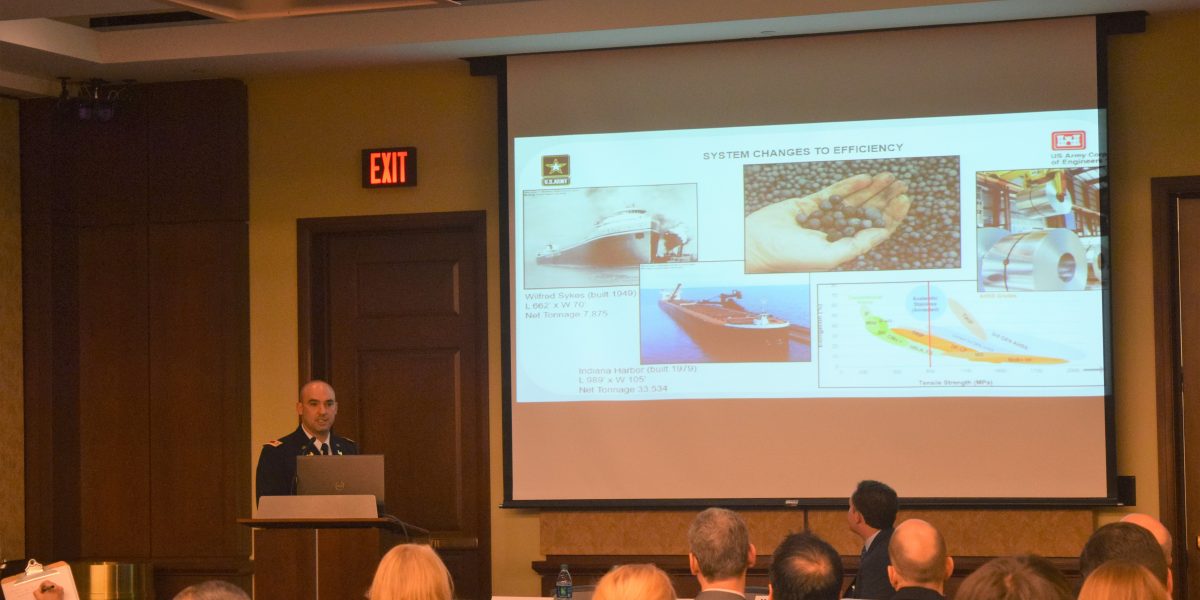The economic and navigational impact of the Soo Locks in Sault St. Marie, Michigan was the focus of a briefing hosted by the Northeast-Midwest Institute on Capitol Hill on January 31. The U.S. Army Corps of Engineers (USACE), which is currently conducting an economic reevaluation study of the feasibility of building a second 1,000-foot commercial shipping lock in Sault Ste. Marie, gave a presentation highlighting the importance that the Locks play in the supply chain of the U.S. steel industry. Additionally, a representative from the American steel industry was in attendance to discuss the importance of the Soo Locks to the American manufacturing sector.
LTC Dennis Sugrue, Detroit District Commander U.S., Army Corps of Engineers, began the presentation with an emphasis on the purpose and criticality of the Soo Locks. The Soo Locks allow domestic steel to be an integral part of the North-American manufacturing supply chain. Roughly 60% of what is transported through the Soo Locks is commodities, highlighting the economic significance of the Soo Locks. He also noted that the Soo Locks are critical in allowing Great Lakes commercial vessels to navigate the St. Marie’s River; the connection between Lake Superior and the lower lakes.
Tom Dower, Senior Director of Government Relations, ArcelorMittal, highlighted the importance of the Soo Locks for transporting iron ore deposits and several other minerals. He reported on proposals for a new lock which will be identical to the Soo Locks, both in operation and physical structure. The proposals for the new lock are believed to be going through economic validation. He also described the potential risks of the project as being comparable to any large construction site, although the new locks would leave less of a footprint than most major construction initiatives as environmental laws do exist.
This briefing was hosted by the Great Lakes Washington Program (GLWP) at the Northeast-Midwest Institute. Created to further the restoration and revitalization of the region, the GLWP improves the Great Lakes ecosystem and economy through its relationship with the bipartisan U.S. Senate and House Great Lakes Task Forces of the Northeast-Midwest Coalitions, as well as its outreach and interaction with state, provincial, and federal agencies, experts, and stakeholders. By conducting and providing non-partisan federal policy research and background, and tracking legislation, the GLWP serves as a trusted source for the region on Great Lakes issues. You can read more about the GLWP here.
The Northeast-Midwest Institute is a Washington, D.C.-based, nonprofit, nonpartisan public policy organization committed to economic vitality, environmental quality, and regional equity for the 18 states of the Northeast and Midwest.
